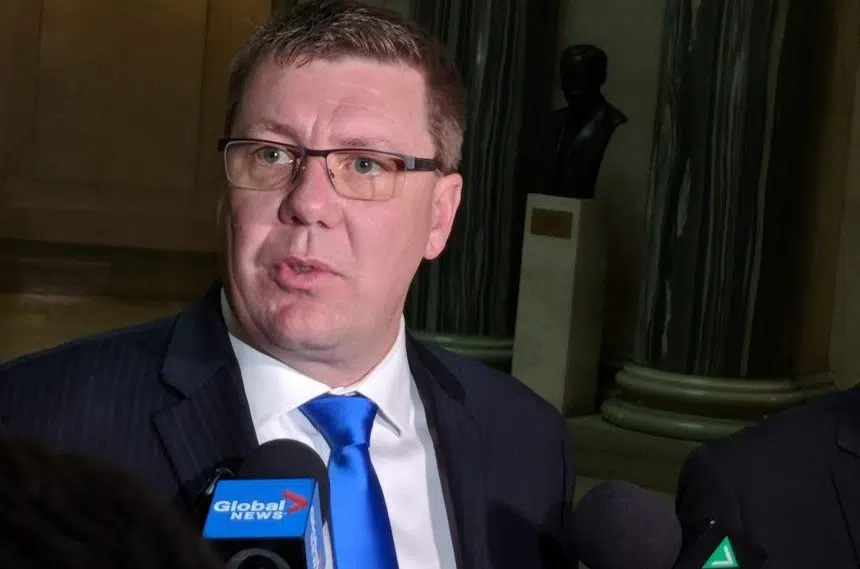It’s been threatened ever since the Liberal government first made its intentions known and now the Saskatchewan government is moving forward with its court challenge over a federally-imposed carbon tax.
“We will be moving with our reference case to the court of appeal here in the province of Saskatchewan in the coming weeks,” said Premier Scott Moe Wednesday afternoon to reporters gathered in the rotunda at the legislature.
The move comes in direct response to an omnibus bill the Trudeau Government introduced Tuesday afternoon.
Justin Trudeau just introduced plan to impose a carbon tax on Saskatchewan in the most hypocritical and underhanded way possible: buried in 556-page omnibus bill
In the 2015 election, he criticized this very practice as "legislative tricks to avoid scrutiny" & promised to end it https://t.co/UfOQn13JA0
— Scott Moe (@PremierScottMoe) March 28, 2018
This same bill includes, among other things, cannabis, tobacco labelling, EI, High Arctic Research Stn & coins one can use when paying a bill
And a carbon tax.
This is outrageous. Your @SaskParty govt will continue to fight fed govt attempt to impose a carbon tax on SK families https://t.co/bPjGbZmKE8
— Scott Moe (@PremierScottMoe) March 28, 2018
He said first the Liberals were one of the largest opponents of these sorts of bills, and now they have brought forth the largest and longest budget bill that has ever been introduced. Bill C-74, at more than 550 pages, lays out the federal budget, along with a carbon tax.
“A carbon tax just simply does not work. Nowhere in the world does a carbon tax actually reduce emissions,” Moe was quick to reiterate.
Moe maintained the province has its own plan to reduce emissions.
He said the Provincial Auditor of Saskatchewan has identified three major emitting industries: electrical generation, the energy industry and the agriculture industry.
On electrical generation, Moe said they have a 40 per cent reduction plan by the year 2030. On energy, the premier outlined their plan to reduce methane by 40 to 45 per cent. And on agriculture, he said thanks to investments, that industry is carbon neutral.
The premier also noted the auditor has identified Saskatchewan as reducing its emissions by 11 per cent over the coming years, which Moe said was the second largest reduction in Canada.
He once again took the opportunity to try and convince the federal government to move forward with more pipelines, saying Canada’s carbon footprint is far less than other countries and it’s important to look at this issue from a global emissions perspective.
Moe said the province is very confident in its court case, especially since provincial resources have always been under provincial jurisdiction.
“I would put forward that you will see some other provinces have a hard look at this as well, as this is an infringement on what is traditionally a provincial area of regulation if you will,” he said.
“If they were confident in their position, their position of infringing on provincial jurisdiction, they would let the (carbon tax) bill stand on its own.”
The Trudeau government has said since the carbon tax is a levy, the budget bill properly addresses it.







